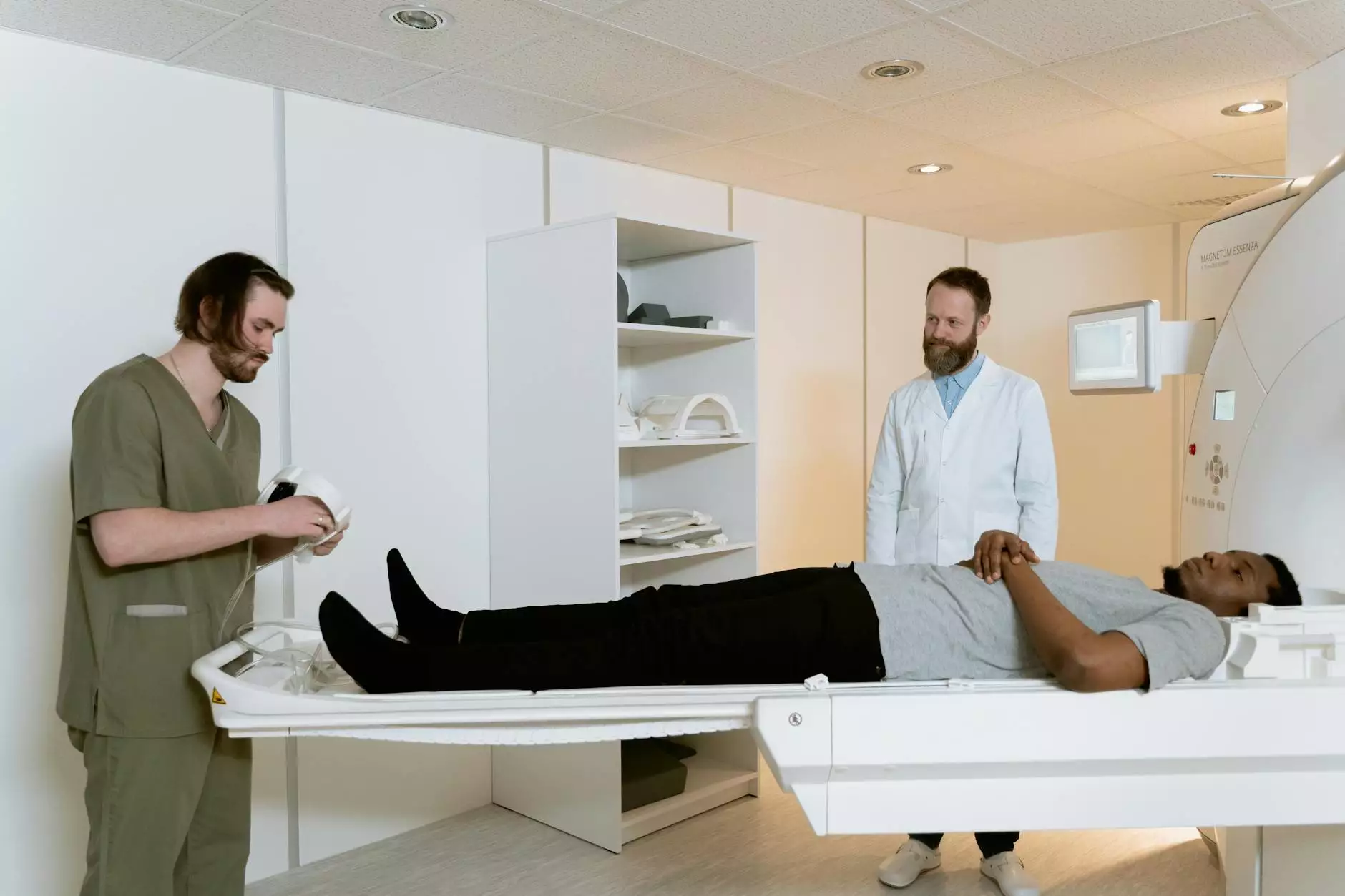Understanding Medical MRI Services: A Comprehensive Overview

The landscape of medical diagnostics has evolved significantly over the past few decades, and one of the cornerstones in this evolution is medical MRI services. Magnetic Resonance Imaging (MRI) has transformed the way healthcare providers can visualize internal structures of the human body, allowing for precise diagnostics and treatment planning.
What is MRI? An Introduction to Magnetic Resonance Imaging
Magnetic Resonance Imaging, commonly known as MRI, is a non-invasive diagnostic tool that uses powerful magnets and radio waves to generate detailed images of organs and tissues inside the body. Unlike X-rays and CT scans, which use ionizing radiation, MRI offers a safer alternative because it does not expose patients to harmful radiation.
This sophisticated imaging technique is especially effective in imaging the brain, spine, joints, and soft tissues, providing unparalleled detail that is crucial for accurate diagnosis.
Benefits of Medical MRI Services
The advantages of utilizing medical MRI services are numerous:
- Non-invasive: MRI scans do not require any surgical intervention, making them a safe option for most patients.
- No Radiation: Unlike traditional imaging methods, MRI does not involve exposure to ionizing radiation, significantly reducing the risk for patients.
- High-Resolution Images: MRI provides incredibly detailed images, allowing for better assessment of various conditions.
- Versatility: MRI can be used across multiple specialties, effectively diagnosing neurological, musculoskeletal, and abdominal issues.
- Functional Imaging: Advanced MRI techniques, such as functional MRI (fMRI), can monitor brain activity, providing insights into neurological functions.
The Process of Undergoing an MRI Scan
Preparation for an MRI
Preparing for an MRI is often straightforward, yet it's essential for patients to follow specific guidelines to ensure the best results:
- Wear Comfortable Clothing: It’s advisable to wear loose-fitting clothes without any metal zippers or accessories.
- Inform Your Doctor: Patients should disclose any metal implants, allergies, or medical conditions that might affect the scan.
- Limit Food and Drink: Depending on the type of MRI, patients may be instructed to fast for a few hours beforehand.
What to Expect During the MRI Scan
The actual MRI process can be divided into several key steps:
- Positioning: Patients will lie down on a movable examination table, and the specific area to be scanned will be aligned with the MRI machine's magnet.
- Scanning: The MRI machine will create a strong magnetic field and transmit radio waves. Patients will hear tapping or thumping sounds during the scan, which typically lasts between 15 to 90 minutes.
- Post-Scan Procedures: After the scans are completed, patients can resume normal activities. If a contrast agent was used, patients may need to hydrate adequately.
Types of MRI Scans Offered
There are several types of MRI scans available, and understanding these can help patients choose the right service:
- Brain MRI: Focuses on brain structures, helping to diagnose conditions like tumors, traumatic injuries, and neurological diseases.
- Spinal MRI: Used for evaluating back pain, herniated discs, and spinal abnormalities.
- Joint MRI: Effective in assessing injuries and diseases in joints, such as tears in ligaments or cartilage degeneration.
- Cardiac MRI: A specialized scan focusing on the heart, providing insight into heart function and structure.
- Abdominal MRI: Assesses organs within the abdomen such as the liver, kidneys, and pancreas, to identify diseases and conditions.
Understanding MRI Technology and Innovations
As technology evolves, so do MRI services. The incorporation of advanced features into MRI machines enhances the diagnostics capabilities:
- Open MRI Machines: These machines provide a more comfortable experience for patients with claustrophobia.
- High-Field MRI: Newer machines with high magnetic strength (3Tesla) provide enhanced image quality and faster scans.
- Functional MRI (fMRI): A technique that measures and maps brain activity by detecting changes in blood flow.
- Diffusion Tensor Imaging (DTI): Used primarily in brain studies to visualize white matter tracts.
Choosing the Right MRI Service: Echo Magnet Services
When looking for quality medical MRI services, patients should prioritize facilities that emphasize patient comfort, advanced technology, and experienced staff. At Echo Magnet Services, we provide state-of-the-art MRI services that cater to a variety of diagnostic needs.
Why Choose Echo Magnet Services?
- Expert Radiologists: Our team consists of highly trained radiologists who interpret MRI scans with precision.
- State-of-the-Art Equipment: We utilize the latest MRI technology to ensure high-quality imaging and faster results.
- Patient-Centric Approach: Your comfort and convenience are our top priorities, with streamlined processes and compassionate care.
- Accessible Locations: Our facilities are conveniently located, ensuring easy access for all patients.
- Comprehensive Support: From scheduling to follow-ups, we provide full support throughout your diagnostic journey.
Conclusion: The Importance of MRI in Modern Medicine
In conclusion, medical MRI services play a pivotal role in today’s healthcare landscape, providing critical information that aids in the diagnosis, management, and treatment of numerous health conditions. As technology progresses, MRI continues to evolve, offering better imaging solutions and enhancing the patient experience.
For anyone in need of MRI services, trust the expertise and advanced technology at Echo Magnet Services. Our commitment to excellence ensures that you receive the best care possible. By choosing us, you are choosing clarity, precision, and the highest standard of medical imaging available today.









